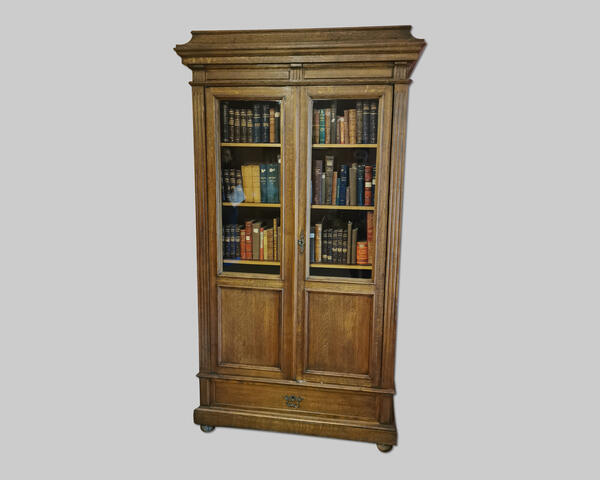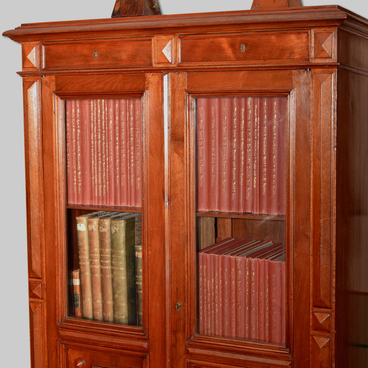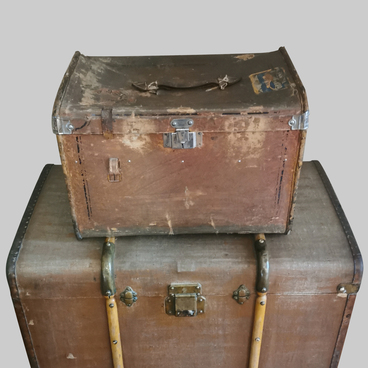Aside from music, Tchaikovsky’s other big passion was literature. He always read a lot, and as a child he even wrote poems in French. His key topics were reflections on God, the motherland, unfortunate and underprivileged people. The adults would dub the future composer “little Pushkin” and thought he would grow up to become a poet.
Tchaikovsky’s interest in reading from early childhood was supported by his governess Fanny Dürbach. She spent a lot of time reading books with her students. The future composer especially enjoyed Michel Masson’s Celebrated Children of All Ages and Nations. The fate of Louis XVII who died as a child during the French Revolution due to ill-treatment in prison deeply moved the young Tchaikovsky’s soul. The composer also admired Joan of Arc and her selfless service to her homeland, for which she gave up her life. She was always one of Tchaikovsky’s favorite characters, and he later wrote The Maid of Orleans opera about her story.
As an adult, Tchaikovsky followed the news of the literary world and read the works of French writers and playwrights. His letters to family and friends include reviews of the books he read. Tchaikovsky’s favorite authors included Gustave Droz, George Sand, Alfred de Musset, Pierre Beaumarchais, Jean-Jacques Rousseau, Pierre Corneille, Guy de Maupassant, Gustave Flaubert.
What stands out in the composer’s bookcase is the large four-volume biography of Wolfgang Amadeus Mozart, written by Otto Jahn. Tchaikovsky enjoyed re-reading a couple of pages from the biography in the morning, and then playing the compositions mentioned in the text.
Aside from his musical talent, Tchaikovsky also had reasonable literary skills, which was clear from his correspondence and critical articles. His close friend Nadezhda von Meck even suggested that he wrote a biography of one of the great composers. But Tchaikovsky refused with the following argument: “I would only be interested in writing Mozart”s biography. But Otto Jahn has already done that, and he has done it so well that I have nothing to add”.
Tchaikovsky’s interest in reading from early childhood was supported by his governess Fanny Dürbach. She spent a lot of time reading books with her students. The future composer especially enjoyed Michel Masson’s Celebrated Children of All Ages and Nations. The fate of Louis XVII who died as a child during the French Revolution due to ill-treatment in prison deeply moved the young Tchaikovsky’s soul. The composer also admired Joan of Arc and her selfless service to her homeland, for which she gave up her life. She was always one of Tchaikovsky’s favorite characters, and he later wrote The Maid of Orleans opera about her story.
As an adult, Tchaikovsky followed the news of the literary world and read the works of French writers and playwrights. His letters to family and friends include reviews of the books he read. Tchaikovsky’s favorite authors included Gustave Droz, George Sand, Alfred de Musset, Pierre Beaumarchais, Jean-Jacques Rousseau, Pierre Corneille, Guy de Maupassant, Gustave Flaubert.
What stands out in the composer’s bookcase is the large four-volume biography of Wolfgang Amadeus Mozart, written by Otto Jahn. Tchaikovsky enjoyed re-reading a couple of pages from the biography in the morning, and then playing the compositions mentioned in the text.
Aside from his musical talent, Tchaikovsky also had reasonable literary skills, which was clear from his correspondence and critical articles. His close friend Nadezhda von Meck even suggested that he wrote a biography of one of the great composers. But Tchaikovsky refused with the following argument: “I would only be interested in writing Mozart”s biography. But Otto Jahn has already done that, and he has done it so well that I have nothing to add”.



